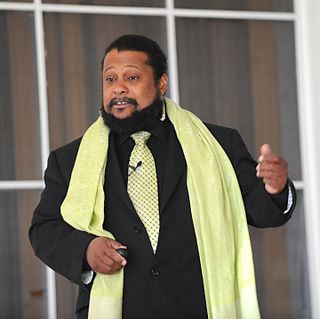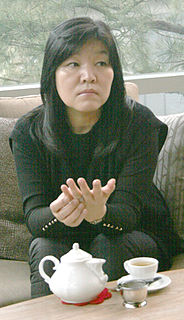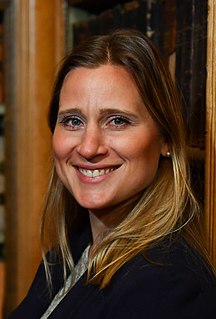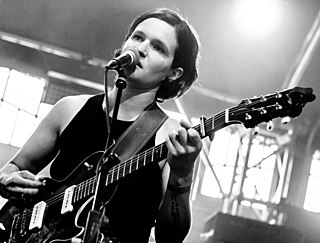A Quote by Joseph Stiglitz
I knew that discrimination existed, even though there were many individuals who were not prejudiced.
Quote Topics
Related Quotes
We felt the imprisonment of being a girl, the way it made your mind active and dreamy, and how you ended up knowing which colors went together. We knew that the girls were our twins, that we all existed in space like animals with identical skins, and that they knew everything about us though we couldn’t fathom them at all. We knew, finally, that the girls were really women in disguise, that they understood love and even death, and that our job was merely to create the noise that seemed to fascinate them.
Ernest once told me that the word paradise was a Persian words that meant walled garden. I knew then that he understood how necessary the promises we made to each other were to our happiness. You couldn't have real freedom unless you knew were the walls were and tended to them. We could lean on the walls because they existed; they existed because we leaned on them.
All those people who went out [to Occupy Wall Street] missed work, didn't get paid. Those were individuals who were already feeling the effects of inequality, so they didn't have a lot to lose. And then the individuals who were louder, more disruptive and, in many ways, more effective at drawing attention to their concerns were immediately castigated by authorities. They were cordoned off, pepper-sprayed, thrown in jail.
I conceived of myself in large part as a teacher. There wasn't a great understanding of gender discrimination. People knew that race discrimination was an odious thing, but there were many who thought that all the gender-based differentials in the law operated benignly in women's favor. So my objective was to take the Court step by step to the realization, in Justice Brennan's words, that the pedestal on which some thought women were standing all too often turned out to be a cage.
When I was in high school in the early 1970s, we knew we were running out of oil; we knew that easy sources were being capped; we knew that diversifying would be much better; we knew that there were terrible dictators and horrible governments that we were enriching who hated us. We knew all that and we did really nothing.
Those who automatically say that the social pathology of the ghetto is due to poverty discrimination and the like cannot explain why such pathology was far less prevalent in the 1950s, when poverty and discrimination were worse. But there were not nearly as many grievance mongers and race hustlers then.
Even though nobody knew that you were in my life, you were the person who brought a raft at every rapid current and helped me cross that water safely. I was happy that you were there. I came to tell you I was able to travel through my life because I could come to you when I was anxious, not when I was happy.




































